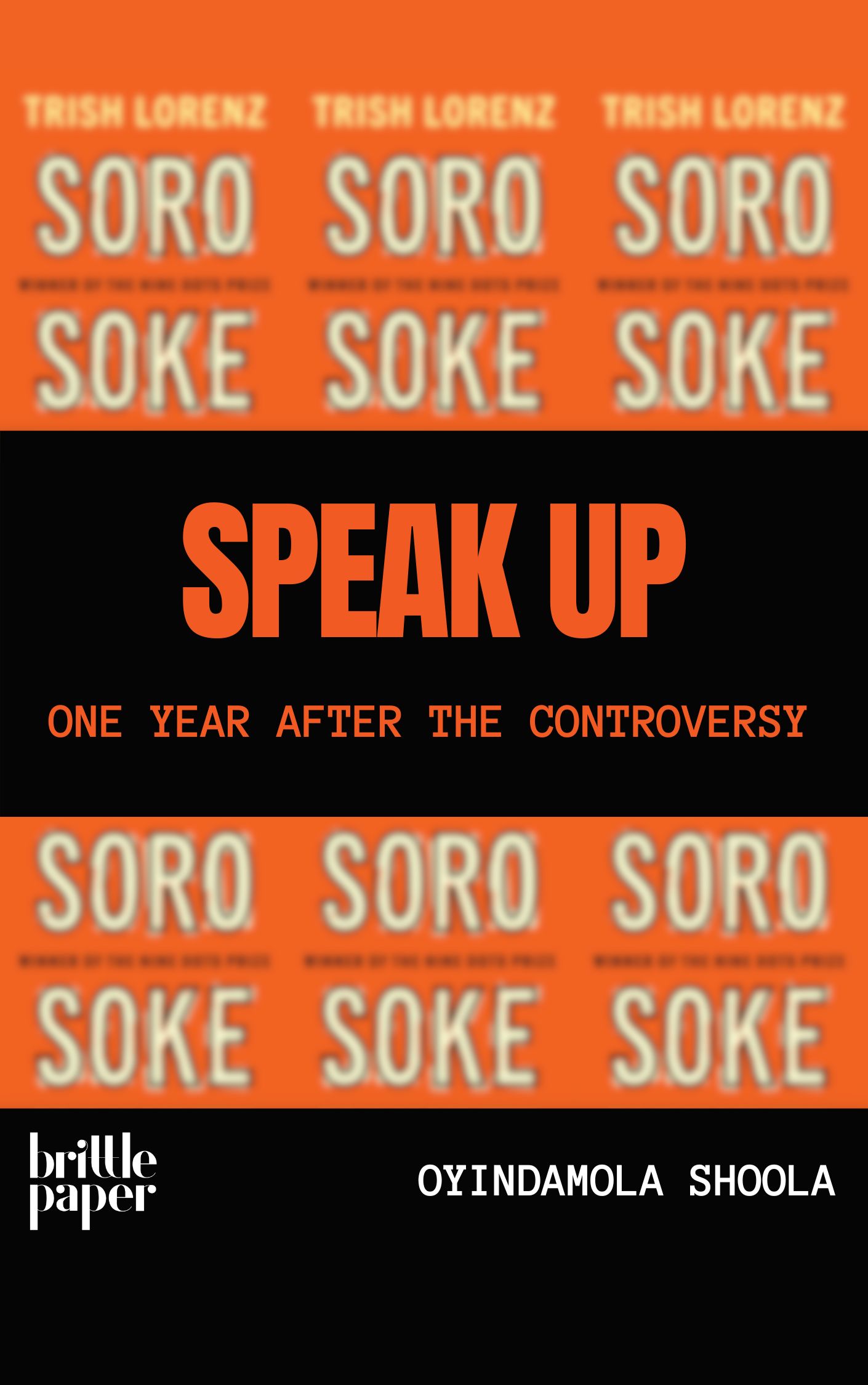
Part III – A Disruption of an African Story
This series wraps up with a detailed interview with Trish Lorenz, re-establishing her intentions of Soro Soke, a book that echoes our victories and acknowledges our losses, and most importantly, makes Nigerians the heroes of their own story and great nation.
Berlin-based journalist Trish Lorenz was announced as the 2020/2021 Nine Dots Prize winner for her compelling and well-evidenced response. Lorenz’s winning essay argued that no question of what it means to be young in the 21st century should overlook the significant youth populations of sub-Saharan African countries, including Nigeria, Ghana, Kenya, Rwanda, and Ethiopia. Focusing on Nigeria as a case study – one of the youngest countries in the world, where more than 42% of the population is under 14 years old – she conducted in-depth interviews and discussions with the youth population to explore the topics such as the role urbanization is playing in defining this generation, and how this generation is, in turn, redefining the notion of an African city. Included in the exploration was the emergence of a distinct generational identity across music, fashion, design, art, and culture, and how this generation is employing technological solutions to become self-sufficient and solve pan-African and global issues. She also looked at the discrepancy between the average age of the population and the age of its leaders, who are amongst the oldest in the world. She focused on the activists challenging traditional societal norms and carving out a new vision of what it means to be African.
Lorenz has been a journalist for more than 15 years. She is a regular contributor to titles including The Guardian, The Financial Times, and The Telegraph, and her reporting has included covering stories in Senegal, Mali, and Burkina Faso. Formerly a design columnist at The Independent and the Lisbon correspondent for Monocle magazine, she covers subjects ranging from design, art, and culture to travel, politics, and human interest. Before moving to Berlin, she lived in Lisbon for eight years, working as a correspondent in Portugal and the Portuguese-speaking world, a role that involved travel and reporting on African Portuguese-speaking countries such as Cape Verde.
In this interview, Lorenz and I discuss the Soro Soke research, reception, and future plans.
Oyindamola Shoola
You won the 2020/2021 Nine Dots Prize with an outstanding response to the question, “What does it mean to be young in an aging world?” In the first chapter, you captured how “by 2100, almost half of the world’s youth are expected to be from Africa, and the continent’s share of the global population is projected to grow from roughly 17 percent in 2017 to around 40 percent…” What was the most insightful part of your research and collaboration with experts to obtain these facts?
Trish Lorenz
What emerged in my research is that new and transformational forces – including access to technology – are reshaping lifestyles, life choices, economic opportunities, values, and culture for young Nigerians. As you say, technology lies at the heart of what it means to be young, enabling youth across the continent to unearth novel solutions to some of the world’s more intractable problems. For young Nigerians, leveraging the Fourth Industrial Revolution is not about copying traditional approaches from the West but conceiving, creating, and delivering entirely new, pan-African solutions. Entrepreneurial at heart, this generation is focused on turning problems into business opportunities and does so with a sense of social justice.
Being young also means having a strong sense of identity. Enabled by their creativity and by the possibility of setting their own narratives, young Nigerians are celebrating their identity and using their music, fashion, literature, and film to inspire the rest of the world. And although they are facing very real and challenging issues, being young also means having an underlying sense of hope. A 2021 UNICEF survey found that 57 percent of young people aged 15 to 24 feel the world is progressing toward a better future. Particularly in the Global South, young people are more positive and globally-minded than those over 40. This was reflected in the people I spoke with, too. Born into a digital, interconnected, and diverse reality, they see a world that is largely a better place than the one their parents grew up in.
Oyindamola Shoola
I am always curious about every writer’s process of coming up with their work. That is sometimes more interesting than the outcome itself. What was the process of creating Soro Soke? How many people did you interview, and for how long?
Trish Lorenz
As is probably the case with many books, Soro Soke was a long time incubation. I have travelled across Africa as a journalist for over ten years, visiting countries in the north, south, and west (not so much in the east). And every time I visited, I met so many inspiring and interesting young people, and I noticed, especially in comparison to the UK and Germany, where I mostly live, how youthful Sub-Saharan Africa is and how positive, creative, and entrepreneurial its young people are. I was always pitching stories about this to editors in the Global North, but somehow, they didn’t quite believe this reality or had their own ideas about what Africa is and how it should be covered. This frustrated me. And when I saw the Nine Dots , I thought it was the perfect moment to write a different kind of story about young Africans. After I won the prize, I spent around 6 weeks in Nigeria, and I also spoke with young Nigerians (both diaspora and living in Nigeria) and with academics and population specialists, and other researchers. All in all, I spoke with more than 50 people, and of course, there was a lot of desk research too. The Nine Dots prize has a fast turnaround, so I had less than 7 months to actually write the book.
Oyindamola Shoola
You could have conducted your research in any other country and focused on any other age group. Why Lagos, Nigeria, and its youth?
Trish Lorenz
I decided to focus on Nigeria because it is such an important country, both in Africa and across the world. Often called the Giant of Africa, Nigeria is home to one in six Sub-Saharan Africans and is currently the seventh most populated country in the world. Its population is projected to surpass that of the United States shortly before 2050; at this point, it will be the world’s third-largest country. It is also one of the youngest countries in the world: more than 42 percent of Nigerians are under 14, and half the population is under 19. Because my work was about young people, I wanted a country with a large youth population. And Nigeria also has a very diverse population, too, so there were many different perspectives to tap into.
On top of these demographic reasons, Nigeria is also an economic and political powerhouse. The Economist calls the country ‘the continent’s most boisterous democracy.’ It is the region’s largest economy, generating a quarter of Africa’s GDP – three of the continent’s four fintech Unicorns (start-ups valued at more than US$1bn) are Nigerian; it has a strong entrepreneurial culture; and an important creative sector across music, film, fashion, and literature. All of these reasons made it the perfect place to begin to start to explore the experiences of young Africans.
I’ve travelled quite extensively across Africa, but I hadn’t been to Lagos or Nigeria before winning the Nine Dots Prize. Lagos was very much on my list of places to visit – one of the world’s great cities, with an amazing cultural scene and fabulous food, and so much energy and verve. I loved it, and Abuja too.
Oyindamola Shoola
In the book’s first chapter, you wrote, “Social media also plays an outsize role. Access to social media is enabling young Nigerians to tell their own stories and engage on equal terms with those on the same platforms in the West. It has opened this generation to wider possibilities and viewpoints and is facilitating a growing recognition of what is no longer tolerable within their society, helping to create a generation that is both increasingly frustrated and willing to call out the injustices it faces.” First, was this in the initial version of the book? Second, did you anticipate the reactions you received on social media toward the book? If not, how did you envision the book would have been received?
Trish Lorenz
Yes, this sentence and the chapter on the importance of social media were always included in the book. In my conversations with young Nigerians, social media emerged as a very important tool for communicating, advocating, organizing, and more. It is a real game-changer in so many ways – culturally, socially, politically – and has enabled young people to stand up and speak up for their rights and viewpoints in a way that previous generations haven’t been able to.
Perhaps I was naïve, but I didn’t expect the reaction I received. Although I had hoped for comments and feedback on the subjects the book raised, I didn’t expect that my identity as a white woman author would have such a significant impact.
Oyindamola Shoola
As a journalist with 15+ years of experience, you are very familiar with the ethics of the field and even, in the simplest terms, the dangers of a single story. In the US, during elections or times when fundamental movements happen like #BLM, #Metoo, or even the COVID-19, top media platforms and journalists are often accused of telling a one-sided story to drive engagement or a particular reaction from their viewers. What goal did you want to accomplish with this book?
Trish Lorenz
The book wasn’t exactly about taking sides; it was more about telling stories that I think are not often told by the media in the Global North. As you say, Africa has been subject to profoundly damaging misconceptions since white foreigners first encountered it. Slavery and subjugation, the carving up of an entire continent without the consent of its people, the imposition of imperial borders based on nothing more than the political expediency of European powers all set up a historic legacy more damaging than elsewhere on the globe. Africa’s myriad peoples and cultures have long been dismissed or disregarded in the Global North. Across literature, film, news, and even academia, the continent is almost invariably portrayed as poor and bereft of history and opportunity. This vision of Africa is a white creation, initially politically useful in justifying plunder and colonialism and more recently to enable a more subtle, but no more benign, western dominance. It was never a true vision of the continent, and it is totally wrong and myopic today.
I wanted the book to challenge readers in the Global North to see a different picture, a truer picture, of the life and dreams, ambitions, fears, and hopes of urban African youth. Because I’m a journalist, the way I thought I could best do that is by letting young Nigerians talk, by letting them tell their own stories.
Oyindamola Shoola
One of my favorite quotes about truths is by post-modernist Harry Frankfurt who wrote, “To establish and sustain an advanced culture, we need to avoid being debilitated either by error or ignorance. We need to know—and, of course, we must also understand how to make productive use of—a great many truths.” If you could clarify one misunderstanding that circled online and surrounded the publication of your work, what would it be and why?
Trish Lorenz
The misunderstanding around the title is the one thing I wish I could clarify. People thought I had stolen it or appropriated it for my benefit. In fact, before the book was published, there was some resistance to using Soro Soke because the publishers felt it might be too difficult for non-Nigerian audiences to understand. My editor and I argued strongly for it because we felt it showed that the book focused on young Nigerians and that their voices were the basis of the book; that this book belonged to them. Soro Soke is so clearly a phrase that belongs to young Nigerians, it shows their strength and outspoken desire for change, and we chose it in solidarity and support. I was devastated that it turned out to have the opposite effect.
Oyindamola Shoola
Another favorite quote about truths is by David Foster Wallace — “The truth will set you free. But not until it is finished with you.” What lessons and resolutions did this experience bring to you?
Trish Lorenz
I haven’t heard it before, but I love this quote! What I learned… well, writing Soro Soke reinforced my belief that young Africans are amazing. They are resilient, creative, ambitious, hardworking, passionate for change, and entrepreneurial. They are the future of the world. My resolution is to keep writing balanced, honest, and unbiased views of the amazing people of the continent and to challenge, in whatever ways I can, the global structures that continue to hamper the full potential of young Africans.
Oyindamola Shoola
You won the prize from the Nine Dots, which is rightfully yours as it would have been for any other winner. What did the award equip you to do? And why was the book a free download?
Trish Lorenz
Along with the practicalities of funding the research and writing the book, winning an award like this is very important for building confidence and self-belief. Writing can be a lonely business, and the award gave me encouragement that I am on the right path.
The 9 Dots books are always free to download because the prize is very keen that anyone can read them. It’s not about making a profit from sales but about distributing ideas widely and broadly so that as many people as possible can read, comment, think about, and develop the ideas raised in them. (Soro Soke is the third book in the 9 Dots series, the fourth will be out in 2024).
Oyindamola Shoola
What was your favorite part and happiest moment in creating Soro Soke, from applying to the Nine Dots prize to publishing the book?
Trish Lorenz
My favorite part was definitely my visit to Nigeria. I loved every minute of my time in Lagos and Abuja. I met so many interesting people, both cities are inspiring and energizing, and I learned so much. The food is amazing too 🙂
Oyindamola Shoola
If you hadn’t won the Nine Dots, would you have pursued the Soro Soke project, or was this just one of those serendipities where an idea aligned with the prize and your availability for research?
Trish Lorenz
As I said earlier, I’d been thinking about it for a long time, but without the prize, I don’t think it would have happened when it did – the prize enabled me to fund the trip, the research, and the writing and without that, I wouldn’t have been able to afford to do it.
Oyindamola Shoola
There is an African proverb that says, “Until the lion tells the story, the hunter will always be the hero.” The protectiveness of the phrase Soro Soke and even African stories from being told by foreigners has primarily resulted from history when our stories or stories about us have been erased or poorly told by colonizers of African countries. Seeing how the book was mostly quotes and excerpts from your interview with several young Nigerians, who did you intend as the voice of the book, you, the author, or the interviewees? And why?
Trish Lorenz
This book was always meant to be written from the perspective of young Nigerians. I see myself as simply the megaphone that projects their voices to an audience in the Global North. As a journalist, I strongly believe that letting people tell their own stories in their own words is the only way to reach some kind of truth.
Oyindamola Shoola
You seem to enjoy traveling, not only for work but as a lifestyle, and you moved to Berlin in early 2020. Before that, you lived in Lisbon for eight years. When traveling, what conscious effort do you take in assimilating, associating with, and adapting to the new country’s culture and people? What measures did you take towards this project focused on Nigeria and its culture?
Trish Lorenz
I do love traveling. I’ve lived in Australia, India, Britain, Spain, Portugal, and Germany and have traveled very extensively (70+ countries). I’ve written about many of those countries and have interviewed and spoken to people ranging from prime ministers and business leaders to poets, artists, farmers, shopkeepers, hoteliers, designers, and housekeepers. My personal belief is that all over the world, people have more in common than that which differentiates them, but of course, I always consider cultural norms around how I dress, how I present myself, and how I address the people I meet. I treat people with respect and courtesy. I spend time learning about what is culturally important, and if I’m unsure, I always ask how best to proceed in a situation.
Before I traveled to Nigeria, I read many books (fiction and nonfiction) and spoke to diaspora Nigerians so that I know what to expect, how to behave and what to wear, etc. Once I arrived, all the Nigerians I met made me feel incredibly welcome. They were helpful and friendly, and interested in the project. Many people went out of their way to introduce me to family and friends and invited me to share a meal. It was a great experience.
Oyindamola Shoola
What was the most surprising and interesting thing about Nigerian culture and its people based on your engagements for this project?
Trish Lorenz
One of the most interesting things to me was the strength of entrepreneurial spirit in Nigeria. Everyone has a business or a side hustle and so many great ideas. There’s a real energy and a willingness to disrupt existing systems, both to create change and to make some money. I was also interested in how strongly religious young Nigerians are too. Faith, across all religions, seems intrinsic to life, and that’s something you don’t see so much in the Global North.
Oyindamola Shoola
This is your first book. With your 15+ years of journalistic work, you had the option of choosing a range of topics. Reflecting on the past year, if you could re-write your first book, what would it be and why, or would it still be Soro Soke? What would you have done differently, if anything?
Trish Lorenz
I’m very happy that the first book I wrote was on a subject so close to my heart and something I felt was important to say, so no, I wouldn’t change the fact that Soro Soke was my first. Perhaps I would have chosen a different title because I think the anger/frustration/protectiveness around the title obscured some of the positive things the book has to say.
Oyindamola Shoola
I am currently reading Dorothy Parker’s Enough Rope – a collection of simple satirical poems. What book are you reading, and how did you learn about it or choose it? What’s it about, and would you recommend it to someone else?
Trish Lorenz
One book that I’m reading right now is called Imperium. It’s a history of Soviet Russia by a Polish journalist called Ryszard Kapuściński. I live in Berlin, and the Ukraine war feels very close to us (Kyiv is less than 1000 km away), and although this book was written in the early 1990s, it has a lot of interesting contexts about Russia and how/why/what is driving this war. It’s very interesting and well written, and I think it’s helping me understand some background to what’s happening.
Oyindamola Shoola
What is an untold or less-known story of a place or people you have always wanted to pursue and bring to light as a journalist? And why?
Trish Lorenz
Everyone thinks Australia is all about Sydney, the Opera House, and the beaches, but I grew up in a very remote, deep outback of Australia. I feel that it’s a part of the world that isn’t fully understood or well represented, both in terms of the natural world (it’s an amazing arid/desert landscape) and the people who live there.
Oyindamola Shoola
What career would you have pursued if you weren’t or couldn’t become a journalist or writer?
Trish Lorenz
That’s a tricky one! Writing was always my thing. Maybe I would have been a librarian; if I’m not writing, I love reading. Or perhaps a politician – I am often frustrated by the quality of leadership!
Oyindamola Shoola
What projects are you working on now?
Trish Lorenz
I’m currently writing a series of crime fiction novels (the first two are already published, two more to come) under my crime-writing pseudonym Patricia Wolf. When that project is finished later in 2024, I’m hoping to apply for consulting roles as a researcher and policy adviser for government/NGOs to help influence and drive a progressive policy agenda, particularly around migration, in the EU.
Oyindamola Shoola
Thank you so much for sharing your time and shedding more light to the publication of Soro Soke. I hope this series brings the clarity that will encourage many to download and read the full book, Soro Soke.
If you haven’t already, read Part II here, and be sure to check back in next Friday for the release of the Oyindamola Shoola’s ebook.


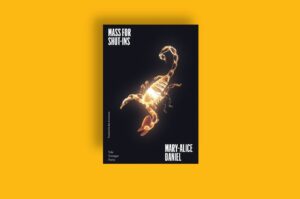
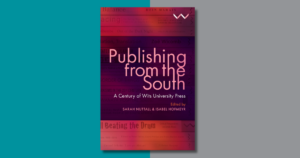
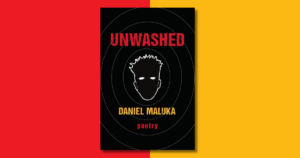
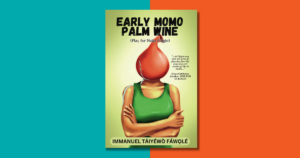
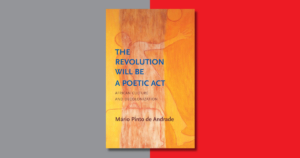
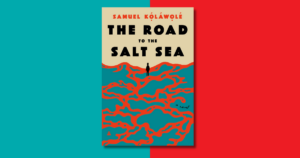

COMMENTS -
Reader Interactions